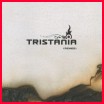Tristania - Ashes
Tristania - CD Review
CD Info
2005
Label: Steamhammer
7 Tracks
Language: English
Seven tracks is a paltry sum for any album unless you’re Opeth, whose astounding sound quality and songlengths can only be rivalled by the choicest classical pieces. Unfortunately, Tristania aren’t Opeth so they can’t really get away with giving us such a small number of songs on an album. OK, Ashes has been hotly anticipated for a number of years and has had more stops and starts than the Jaipur Express, though this measly offering could at least be forgiven if it bore the quality of anything like some of the earlier Tristania releases. Like some kind of organised debate on abortion or euthanasia, most people will have already made their minds up before hearing anything, and I dare say that a lot of people were keen to fall down in deference in front of Ashes before they’d even heard the ratty strains of Kjetil’s voice in Libre. Still, I’m always willing to go the distance and to give things a chance, and I was very excited and intrigued to see what Tristania would come up with next.
The first thing that hits you when you press the play button is the screams of Kjetil, who, just as long as you don’t look at the guy, isn’t that bad at the death vocals. I remember seeing Tristania play in London a few months ago and I was shocked at how out of place he looked against the rest of the band. He looked like some kind of Gothic Keith Flint and I would have loved him to break into Breathe or Smack My Bitch Up halfway through a song. Image aside, Libre starts off in a gruelling, “we still mean business” kind of way with chuggy-chuggy guitars that are too shy to do anything but hop up and down a tone or two and it really is a poor start to an important album. Remember the opening to Widow’s Weeds? Beyond The Veil? The atmosphere, which is what a large part of Tristania’s music is about, is stripped from the soundwaves and we’re only left with something carrying the form of a musical head-butt, and quite a half-hearted one at that. And that’s one of the problems throughout the album as a whole - there’s no feeling of completion, of totality, everything just goes off half-cocked. The one saving grace is Vibeke, and when her vocals come in after about a minute, it’s hard not to feel a great sense of joy and relief. She, at least, has lost none of her former glory or talent as a vocalist and throughout all of Ashes her voice sounds angelic as ever.
I should at least pay tribute to Tristania for not doctoring their style to a more commercial arena though, especially since we’re now in a period where the pressure to do this is more prominent than ever. The song-writing is still good and there are no immediately catchy hooks, though the more likeable passages certainly become more noticeable after a couple of listens - Equilbirum being one of these and Shadowman, which is destined to become many people’s favrourite. Nevertheless, Tristania have altogether dispensed with the choirs on this record, which will be a disappointment to many people, but was something that I didn’t notice until it was pointed out to me, which either goes to show that I wasn’t paying attention or that they’re not needed anyway. Though the former may be true somewhat, when you look at most of the passages, the standard 4/4 of the song-structures and the cadences which do very little in the way of interesting chord shifts means that a choir would be out of place, and this is a shame, because the music is just not that innovative on its own. The Wretched attempts some artsy drumming at the beginning before nosediving into one of the worst choruses I have heard in a metal song, when I first heard it I thought it was a joke. It sounds like it was sung by the cast of Sesame Street.
Tristania do show that they haven’t lost their ability to make beautiful melodies when they put their minds it, and Cure is one of the most gorgeous songs that the band have put out for a while, with no death vocals or distortion. It could even rival Deadlocked on World of Glass, the song for me which defines what Gothic Metal should be about. There are also parts on Shadowman and Endogenisis which show their talent in this regard, though it would be welcome to see some more classical instrumentation as well, since there is only the odd violin line thrown in here and there. It seems that the efforts are no longer concentrated on making an elaborate metal package with all the trimmings, but creating just as much as they can get away with.
There is very little on Ashes to get excited about if you compare it to their previous efforts. The biggest criticism is that the song lines are probably the most unadventurous that I have heard in a long while. If Tristania could have picked a time to depart positively from their previous sound, then this would have been it, unfortunately, they have done away with some of the parts that made them so extravagant and popular when they came to fruition at the end of the 90s. My inkling is that Ashes is the start of a downward spiral. If this were a debut, I’d be suitably impressed. However, Tristania are an established ensemble and we know what they are capable of when they put their minds to it, and they can come up with better material than this.
5.5/10

